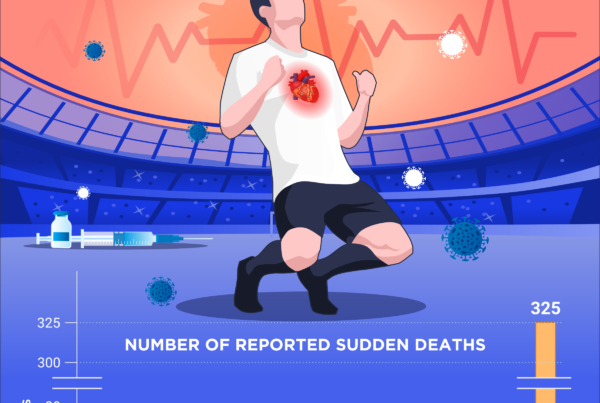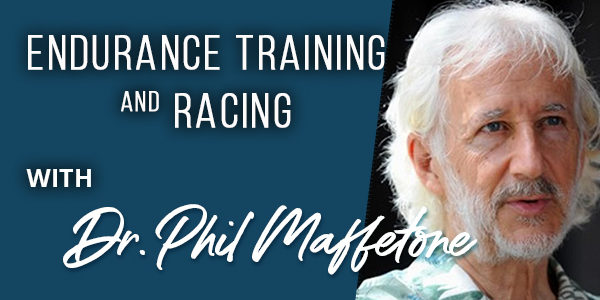
Tragic events underscore need to understand balance between fitness and health
The recent death of a 55-year-old competitive mountain biker in the popular Leadville Trail 100 MTB in Colorado has garnered the attention once again of a media obsessed with pointing out the irony of highly trained — and seemingly healthy — endurance athletes who die suddenly while racing or training.
The cyclist died of an apparent heart attack in the last miles of the high-altitude 100-mile ultra mountain biking race; it would have been his 19th time completing the event. While the story is truly sad and we send out condolences to friends and family, it also underscores a need for the entire athletic community to have a more serious discussion about the real cause of sudden deaths in athletes. The most common cause is a heart attack, and many of these tragedies are the result of athletes being willing to sacrifice their health — sometimes unknowingly — while following no-pain, no-gain programs in a futile attempt to gain more more fitness.
This story is not new. Our modern-day marathon is based upon the story of the ancient Greek runner Pheidippides, who died after running from Marathon to Athens, Greece, to deliver news of a military victory against the Persians in the Battle of Marathon. So in fact the marathon event itself is based upon the death of an athlete.
The scenario has repeated itself throughout the ages, including the highly publicized death of Jim Fixx, author of The Complete Book of Running who died of a heart attack while running at the age of 52, to more recently the death of 58-year-old ultramarathon running icon Micah True, central figure in Christopher McDougall’s New York Times Bestseller Born to Run.
While these athletes’ stories have drawn quite a bit of attention, there have been many others who have had heart attacks and died while pursuing their athletic passion in a variety of sports, and many of them at a much younger age — some of them even teenagers. Others die during training, and even during sleep, and these deaths are often unreported. Still other athletes survive a heart attack or other coronary event — consider the stories of legendary marathoner Alberto Salazar, who won both the Boston and New York City marathons, cycling icon Leonard Zinn, and Boston Marathon race director Dave McGillivary.
And while this is the subject of news and magazine articles, and even scientific studies, few are willing to discuss the real underlying cause. We have been sold for years on the notion that fitness and health are one in the same. And often following these tragedies so-called experts point to genetics and family history. While it may be difficult for some to accept, and the subject might prompt an emotional response especially from those who have lost a loved one, there are three important parts of the issue that are almost never discussed. In almost all cases:
- Cardiovascular disease does not occur in a healthy body.
- Cardiovascular disease is preventable through a healthy lifestyle.
- Cardiovascular disease is usually accompanied by abnormal signs and symptoms.
While many people have been conditioned to equate fitness with health, these two conditions clearly are not the same. It is possible to be healthy and not that fit. It is also possible to be very fit, while quite unhealthy. Even the fittest ultra-endurance athletes are not immune to heart disease, just as they are not immune to injuries, ill health, depression, high body fat, and other unhealthy conditions.
The key to the optimal human experience and long-term performance is to find the balance between fitness and health.
The truth is some athletes are unhealthy because of lifestyle and dietary choices, or nutritional deficiencies. Another very common problem is many athletes compromise their health at the expense of getting fit — typically by overtraining, which can include too much volume and not enough rest, but more typically involves too much high-intensity training. This regimen can produce a deadly combination of stress, inflammation and free-radical oxidation.
Additionally, it’s well known that too many athletes who die of preventable conditions ignore the abnormal signs and symptoms of cardiovascular disease (see below), or ignore a health professional’s advice based on tests.
The myth that exercise makes athletes immortal sprung out of the story of Clarence DeMar, who won the Boston Marathon several times and won a medal at the 1924 Paris Olympics despite a previously diagnosed heart murmur. DeMar died of cancer in 1958 at the age of 70, and an autopsy revealed a healthy cardiovascular system with no signs of atherosclerosis. This helped fuel the notion that marathoners were invincible, as well as adding momentum to the running boom that was just taking off.
However, by 1977, the medical journals were already reporting that running did not create an immunity to heart disease, including a study published by Dr. Timothy Noakes entitled, Coronary Heart Disease in Marathon Runners.
In my own practice I was already seeing the ill effects from training in many marathon runners. I made many copies of Noakes’ study to give to disgruntled runners, especially health professionals, in an attempt to impress upon them that exercise itself was not protective against disease. Still later, I began to realize that is some athletes extreme exercise might even promote heart disease.
Avoiding heart disease, regardless of how fit you may be, means taking a careful assessment of many facets of your life, not just your training and racing. This includes managing stress levels, monitoring inflammation, and paying particular attention to diet, nutrition and training.
Much of my program, including my books and articles on this site, are aimed at helping people strike this balance and achieve optimum performance without diminishing health. Only by doing this can you set yourself up for a lifetime of healthy activity while reducing your chances of becoming another heart disease statistic.
Signs & Symptoms
Your body’s trying to tell you something
Heart disease can sneak up on you, and death is too often the first sign. Yet, there are often earlier signs and symptoms that provide clues ahead of time. Just before a heart attack, indications of an impending problem include chest pain or pressure, especially down the arm and worsened by exertion. Others include shortness of breath, high blood pressure (above 120/80), and a family history of heart disease.
Even earlier, often years or decades before a major cardiac event, subtle signs and symptoms may include:
- Anxiety and stress, fatigue, nausea, pain in other parts of body, irregular heart rate, shortness of breath, sweating, swelling.
- Above normal levels of body fat. In particular, a bigger belly. It’s usually obvious — if your waist size has been getting bigger, it’s an even bigger clue.
- Blood sugar problems.
- High levels of triglycerides — fats in the blood that the body produces from dietary carbohydrates.








